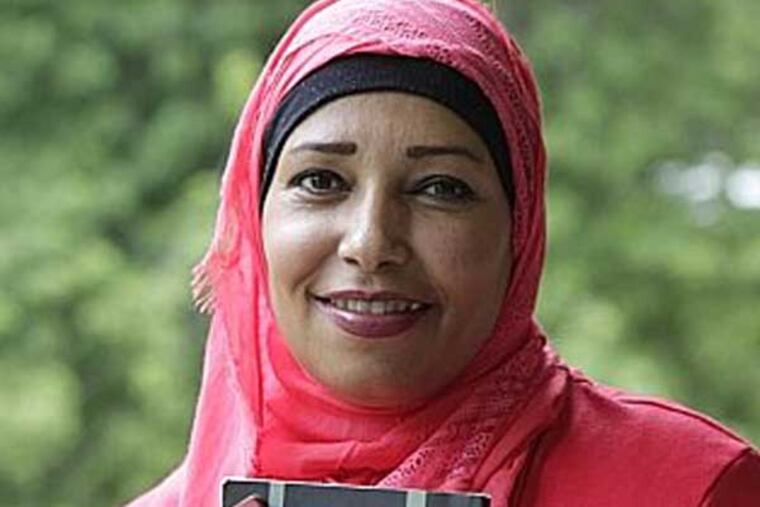'Maya Angelou of Iraq' makes New Jersey home
The Iraqi writer Faleeha Hassan liked an American friend's recent suggestion to collaborate on a poem about peace - until she realized she knew too little about the subject.

The Iraqi writer Faleeha Hassan liked an American friend's recent suggestion to collaborate on a poem about peace - until she realized she knew too little about the subject.
"I don't live with peace," Hassan says. "I live with horrible things, with death, with children who are killed for no reason. I live with war."
No longer: Since 2012, Hassan and her two children have been living in Gloucester County. They were resettled in Washington Township by Catholic Charities, Diocese of Camden, after fleeing Iraq for Turkey in 2011.
"My [published] work gave me trouble," Hassan explains, her English effortful, but expressive. "My name was on a death list. I was afraid for my children. In Turkey, when I spoke to the U.N. [High Command for Refugees], I said, 'Give me any place far away.' They said, 'You should go to America.' "
I meet Hassan in the apartment she shares with her daughter, Zahraa, 14, and son, Ahmed, 12, both of whom attend township schools and are doing well. The apartment is simply furnished, but the balcony overlooks an expanse of lawn and a patch of woods.
After offering cold water and sweets, Hassan invites me to peruse two thick scrapbooks. They're packed with Arabic-language press clippings about the poet, playwright, novelist, and short-story writer who sits across the table from me, a striking presence in person, as well as on the page.
I'd have liked to come to you
but our streets are red
and I do not have
but my white dress
Hassan's recent work includes an autobiographical novel, I Hate My City, written during her unhappy year in Turkey. Photos taken at news conferences, public appearances, and other events attest to her Arab world celebrity.
I didn't find him
he left without a helmet
and nothing distinguishes him
but his heart
he was like my country
too great to bear
"I have had 100 people write about me," says Hassan, who earned a master's degree in Arabic literature from the University of Kufa. She worked as a public school teacher in Iraq for 24 years.
"I don't know exactly who said I was 'the Maya Angelou of Iraq,' but many people have said that," she says.
She welcomes the comparison and, while exceedingly polite, is not afraid to promote herself. Perhaps that's because an Iraqi woman of letters must struggle for attention in a male-dominated culture.
She assumes the voice of a father talking to a daughter in portions of her poem "Black Iraqi Woman":
During a pressing famine
I devoted myself to watching over every breath you took
I would thrust my hand through the film of hope
to caress your spirit with bread
Hassan has begun networking with other writers in the United States. She is active with the Society for Poets of Southern New Jersey and had a poem published in a local literary review.
She also hopes to resume her teaching career, although foreign-born workers sometimes face difficulties in obtaining professional certification in America.
"With her amazing biography, [Hassan] could easily teach in any university that has Arabic studies," society founder David L. Steinberg says. "To have her do anything else, to me, is a waste of a great wealth of talent."
Hassan says she has had conversations with at least one college in the area and is busy with four literary projects, including a work of literary criticism.
She has translated Steinberg's poem "Time Grows Short" into Arabic and has gotten it published on websites in Egypt and elsewhere in the Middle East.
In three years, she can apply for American citizenship.
"I like it here," she says. "I like the peace."
I ask if a collaborative peace poem could be in the offing after all. And Hassan answers, "Why not?"
856-779-3845![]() 856-779-3845 @inqkriordan
856-779-3845 @inqkriordan